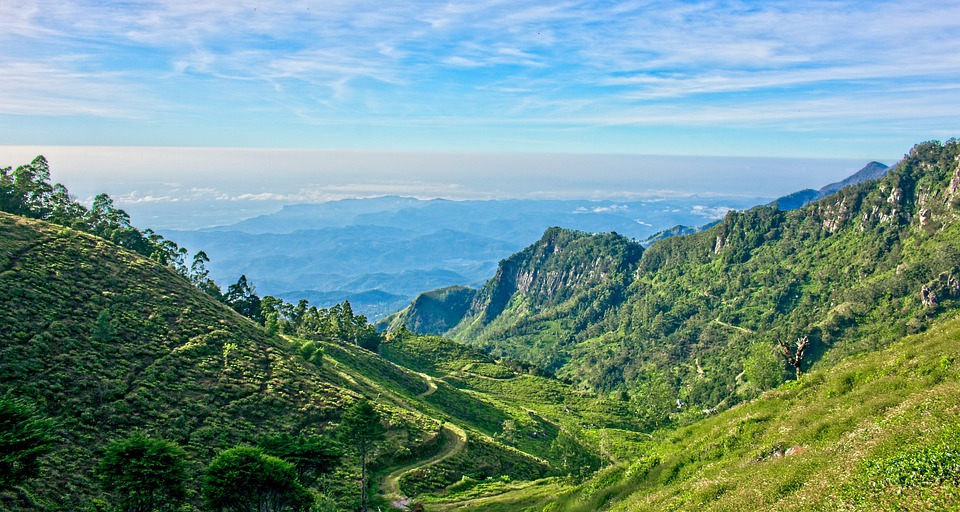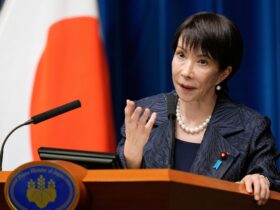Parliamentary elections were held in Sri Lanka following the November victory of President Gotabay Rajapaksa. His brother Mahinda Rajapaksa’s position as Prime Minister has now been officially strengthened.
The main struggle took place between Gotabaya’s Sri Lanka Podujana Peramuna Party (SLPP) and Sajith Premadasa’s Samagi Jana Balawegaya party. As a result, the People’s Freedom Alliance of Sri Lanka (SLPFA), dominated by the SLPP, has won districts across the island with a population of 22 million, winning at least 150 seats out of a total of 225 in the unicameral legislature.
The victory of the brothers was not only a matter of domestic politics (strengthening and centralization of power and the priority of the Sinhalese ethnos) but also of geopolitics (proximity to the Chinese axis). Why is the region so important for China and India, and what can really change in the region?
The new Prime Minister of the 9th parliament of #SriLanka, @PresRajapaksa being #sworn into office by President @GotabayaR this morning. And President Gotabaya Rajapaksa, his brother, #Mahinda #Rajapaksa at #Kelaniya #Raja Maha Viharaya#SriLanka #lanka #lka pic.twitter.com/HWkV07rdmc
— Naveeth Farook (නානා????) (@Naveeth14) August 9, 2020
Rajapaksas’ Reinforcement
Rajapaksa, who has led a minority government since he won the November presidential election and appointed his brother and former security leader, Mahinda, as prime minister, has longed for a majority government to strengthen the personal role of the president on the one hand and the influence of the judiciary, the army and officials on the other.
It is important to note that during the election campaign, one of the issues was the recent amendments to the Constitution (under former Prime Minister Ranil Wickremesinghe), which limited presidential powers (19th amendment). The Rajapaksa family wants to rectify this by amending the Constitution.
Although their party’s victory was expected by experts, there was still a two-thirds majority issue – the only way to easily amend the constitution. The loud victory means that it will now be easier for them to make decisions, making matters faster and more centralized. The Constitution, for example, will be amended to remove the restriction limiting a politician to two presidential terms. The argument of the Rajapaksa brothers is that weakening presidential power leads to poor governance and weak security policies.
The Western media is riddled with headlines about “increasing authoritarianism” in Sri Lanka: the Rajapaksa brothers are accused of over centralising power, placing former military officials in key positions, and strengthening the role of the presidential apparatus in front of ministries.
Sri Lanka Election | Sri Lanka's powerful #Rajapaksa brothers have secured a landslide victory in the country's parliamentary election, according to final results. pic.twitter.com/FCYhtiw79i
— THE NEW LEAM (@thenewleam) August 7, 2020
Ethnic conflicts, the coronavirus’ economic effect, anti-IMF actions
The power of the brothers’ image is that they are seen as strong leaders who put an end to more than 30 years of civil war with the Tamils (insurgents in northeast Sri Lanka). They are also weak in the eyes of their enemies, accusing them of discrimination against ethnic minorities and “Sinhalese nationalism”. The echoes of those contradictions and religious and ethnic conflicts (with the Tamils and Muslims) overshadow their victory, despite the Buddhist Sinhalese majority on the island state.
It is important to remember that the wounds are still bleeding: the origins of the conflicts with the Sinhals and Tamils date back to the 1940s and 1950s, especially after Sri Lanka gained independence from Britain. Major clashes and riots occurred several times – in 1956, 1958, 1977, 1981. Then the real civil war (1983-2009) took the lives of tens of thousands of fighters and civilians.
As Minister of Defence, Rajapaksa led the campaign to defeat the Tamil Tiger rebels in 2009. At the same time he received strong support from the national majority of Sinhalese Buddhists in the presidential elections, while the Tamil and Muslim minorities supported his brother’s opponent, Premadasa.
Rajapaksa, on accusations of nationalism, argues that the polls and elections show that the Sri Lankan people want a strong Sinhalese Buddhist leader.
I am honoured to once again assume duties as the Prime Minister of the Democratic Socialist Republic of Sri Lanka. I look forward to continue to serve my nation and my people in the coming years. pic.twitter.com/M2C5gcSkpD
— Mahinda Rajapaksa (@PresRajapaksa) August 11, 2020
At the same time, Tamil citizens, who make up more than 10% of the population, speak out about their dangerous situation.
Economic shift in priorities
After the victory, changes in the foreign policy framework were immediately apparent: Rajapaksa has clearly shown that he does not see much of the future of Sri Lanka under IMF control.
The first thing he did when he won the election was announce the reduction of taxes and the debt moratorium for small businesses to give impetus to an economy torn apart by political unrest since late 2018. Gotabaya Rajapaksa reduced the value-added tax from 15 to 8% and cancelled other taxes, raising concerns among the IMF about the government’s ability to repay its debts.
However, the turnaround in fiscal consolidation measures led to the expiration in June of the International Monetary Fund’s $1.5 billion program without completion of payments, although the country faced negative effects from Covid-19.
Therefore, experts emphasize that Sri Lanka will seek debt relief from multilateral and bilateral donors and in return try to balance ties with China and India.
Because of the Coronavirus, Sri Lanka is struggling with several hardships at once: a sharp decline in the flow of tourists, diseases, growing unemployment and foreign debt. The World Bank estimates that the country’s economy could shrink by as much as 3% this year.
A particular challenge now is the external debt assumed by the Government to finance development and management projects, mainly from multilateral financial agencies, but also to foreign governments and capital markets.
At the end of 2019, the country’s external debt stood at 67% of the $84 billion GDP.
Time will show whether Rajapaksa will meet these challenges, but it is clear that the IMF is deliberately exacerbating the position of a small state that has dared to move closer to China.
Geopolitics
It is important to understand that what is happening in Sri Lanka may seriously affect the geopolitical landscape in the region. This has long been a field of confrontation between the two most powerful powers, India and China, and recent events are rather indicative of Beijing’s growing influence.
Thank you for the well wishes from President Xi Jinping and the Chinese Communist Party. China’s support for Sri Lanka’s development spans decades. I’m certain that our long-standing, friendly relations will continue to improve as we enhance our cooperation.
— Mahinda Rajapaksa (@PresRajapaksa) August 8, 2020
It is no secret that Rajapaksa has been gradually and steadily leaning toward China – and China’s recent measures to help fight the Coronavirus are evidence of serious support for Sri Lanka’s new government. China has provided US $500 million in support during Coronavirus. China provided it as a concessional loan at the request of President Gotabay Rajapaksa, in addition to sharing the combat experience of COWID-19 with the Sri Lankan authorities. China is the only country that has established an emergency fund under its COVID-19 assistance initiative.
India is not lagging behind – while China has led efforts to help the island nation on the medical front, India has been quicker to provide financial support, including a $400 million exchange agreement.
Why are international powers fighting for Sri Lanka?
Sri Lanka is a strategic point in the Indian Ocean, a waterway crossed by boats carrying half the world’s oil supplies and up to 80% of its energy (in which both Beijing and New Delhi are interested). Not surprisingly, the small island has become a real confrontation arena.
Traditionally, India was considered a closer partner of Sri Lanka, given its history, close cultural ties and geographical proximity. However, active diplomatic and economic cooperation with China in recent years speaks rather about new patronage. Sri Lanka is also an important partner of China in the Belt and Road Initiative.
It was earlier in Rajapaksa that Sri Lanka signed a major port deal with China in Colombo, which was sabotaged by the next government (after 2015). Now on the agenda is a review of the deal.
But the first influence China gained after the civil war, providing financial assistance, F7 fighter jets and further infrastructure projects (stadiums, airport, port Hambantota).
Rajapaksa’s propensity for China certainly hits on relations with India: even at the level of rhetoric, the brothers are quite clear on the pro-Chinese line – when Mahinda Rajapaksa hardly lost re-election in 2015, he accused Indian spies of helping the opposition.
As China and India give priority to technology, economic influence and strategic superiority in Asia, Sri Lanka will play a more prominent role in their rivalry. And the election is likely to be a turning point in Beijing’s favor.

















Leave a Reply